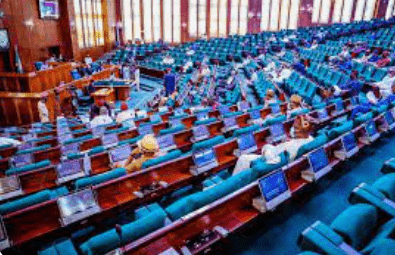The Deputy Chairman of the House of Representatives Committee on Environment, Hon. Terseer Ugbor, and the Director of Policy, Planning, and Strategy at the Nigeria Extractive Industries Transparency Initiative (NEITI), Dieter Ahmed Bassi, are among the key stakeholders set to headline the second edition of the Rembinar Dialogue Series.
The upcoming session, themed “Tax Bills and Implications for the Energy Transition,” will examine the critical intersection between Nigeria’s ongoing tax reforms and its national energy transition agenda.
It follows the success of the inaugural Rembinar dialogue, which has fast emerged as a thought leadership platform on extractive sector governance, fiscal policy, and climate-related reforms.
The dialogue is expected to bring together a cross-section of policymakers, industry leaders, and civil society advocates to explore how emerging tax legislation could either accelerate or impede Nigeria’s shift toward clean energy and sustainable development.
Organisers say the conversation will also address broader implications for transparency, accountability, and effective public finance management within the extractive industries.
Ugbor and Bassi will be joined on the expert panel by Mr. Olumide Idowu, a prominent climate advocate and co-founder of ICCDI Africa. The session will be moderated by Mr. Oke Epia, Founder and CEO of OrderPaper, Nigeria’s foremost parliamentary monitoring organisation and policy think tank.
Speaking ahead of the event, Epia highlighted the timeliness of the conversation, noting that Nigeria’s ambitious energy transition and ongoing tax reforms under President Bola Tinubu’s administration are deeply intertwined.
“This second edition of the Rembinar is important because energy transition is not just about switching to cleaner sources of energy. It’s about the policy frameworks — including tax policies — that shape the journey and impact the lives of ordinary Nigerians,” Epia said.
He warned that unless fiscal policies and tax reforms are designed to align with the country’s national energy goals, Nigeria risks stalling progress in its efforts to transition to a cleaner, more sustainable economy.
“That’s why we’re bringing stakeholders together — to think through these complex but critical issues collaboratively,” he added.
Epia also reaffirmed OrderPaper’s commitment to leveraging data, technology, and civic engagement to bridge gaps between parliament, policy, and citizens.
“We are proud to be creating platforms that foster productive dialogue and generate practical solutions to some of Nigeria’s most urgent governance and development challenges,” he stated.
The Rembinar series, an initiative of OrderPaper in collaboration with NEITI, is a virtual dialogue platform designed to promote deep and critical conversations around resource governance, climate change, and the accountability frameworks shaping Nigeria’s extractive industries and energy transition roadmap.















